No Canadian companies involved in a shortened workweek trial intend to revert back to a five-day week, new research from 4 Day Week Global shows.
What’s never clear in these sorts of articles is if there was any reduction in salaries, or increase in working hours. Like are people going from working 40 hours a week to 32 with no change to their paycheck? Or are they getting paid 20% less? Or are they still working 40 hours, just over 4 days instead of 5?
The 4 day work week is based on the idea that people are more productive with less time to goof off. Work 32 hours for the same pay and you should see the same or better outcomes. So likely the case is yes
I know that’s the idea, but I can’t imagine a lot of companies being eager to effectively pay their employees the same for 20% “less work”. I know it’s a good idea, I just have no confidence in companies. Just look how many of them forced people back to offices during the pandemic despite the safety, cost, and productivity benefits of working from home.
Not 20% less work, 20% less time.
Again, I agree. I just don’t think suits will see it that way
Call it a KPI, trend it up. Boom suit support
Of course they won’t, but that doesn’t mean that that’s what’s being discussed in these articles.
The suits are seeing it that way. Even if you don’t read the article, it’s in the headline my guy. They’re keeping the 32h work weeks
It’s not in the headline that they are paying the same salary though, which was the question.
It doesn’t say they were paid less, and it talks about the same output, so the logical inference is that the salaries stayed the same.
The headline makes it sound like a large number of companies, but it’s actually only a handful.
They are doing more work in less time (and are happier) the tests show.
I agree, but that is true for working remotely as well, and look how few companies still offer that now. Most companies don’t like to make changes that make their employees lives better, even if there is no downside.

I’m just guessing based on what I’ve seen elsewhere, but I think it’s fewer hours with same pay. I don’t think the pay could be less or people wouldn’t want to stay with the company, as mentioned in the article.
My employer was not part of this trial but has been doing this since Spring 2022. There’s been no increase in hours/workday or decrease in salary (and in fact, I got a raise—I think most people got at least a COLA).
We ran our own trial and the results are honestly even more positive than I would’ve thought myself.
Exactly, which makes me wonder what the article is pushing. It could just be bad journalism but theses days anything like that has some agenda it seems. Two weeks from now we will see an article declaring Canadians as lazy because we don’t want to work 5 days a week. This is all hyperbolically of course, but truth is stranger than fiction these days.
Is this
- cheesy 4-day weeks where it’s 4 days x 10 hours; or
- real 4-day weeks where it’s 32 hours a week and no reduction in pay or production?
I’m gonna read the article now, but I’m really expecting to be disappointed. 4-day workweek isn’t about job-sharing; it’s about realizing the same output with longer weekends and everyone getting the same pay for the same output.
I am pretty sure it’s 4x8 since they are trying to be modern with this, I would think. Otherwise it’s mostly just posturing I think lol
Article unfortunately doesn’t specify.
If some companiea can offer fulltime or hybrid WFH to have an advantage in getting employees, some others will.offer 4 day workweeks to be competitive with other companies. Canada can start the trend.
It would help if the governments did it… but I can’t see them being a leader on this one because of the optics.
Government treats public servants like shit because it’s popular to do so. Nobody wants to believe their tax dollars are going toward somebody having a good job when they themselves don’t have a good job.
Crabs in a bucket.
Most people fucking suck.
help if the governments did it
You’d be interested to know that was the sticking point on the recent Fed strike.
And they got it.
I know dozens of people working on unionized government work who were WFH 100% since CoViD day, and haven’t been back. Desks were sold/scrapped, leased released, space repurposed. Onsite are a handful of people, usually rotating assignments, for things like shipping/receiving, and the WFH language is baked into the latest contract there too.
The gov people ARE making progress.
I wish I were that hopeful but I dunno I don’t really see it starting. I’d love to be wrong though.
Any list of companies? I would send in a resume. Especially if they are also fully remote.
Summary of the actual report. You can download it for the price of your email address.
The report presented by 4 Day Week Global evaluates the impacts of a reduced four-day work week over a span of one year. Key findings are as follows:
Employee working hours reduced closer to a target of 32 hours a week after a year, and they were found to work more efficiently. While burnout levels slightly increased after the six-month trial, overall improvement was sustained. Physical and mental health scores, life satisfaction, and work-life balance all improved from the beginning of the trial to 12 months after. Job satisfaction saw a slight regression after 12 months but still remained higher than before the trial. The overall experience of the 4-day week was highly positive with a 9/10 rating, suggesting that reduced work time benefits can be sustained long-term. The report also includes data from businesses in the US, Canada, the UK, and Ireland. The program’s design allowed companies to adopt the 4-day week without a specific model, as long as pay was maintained at 100% and employees saw a significant reduction in work time. Notably, none of the participating companies desired to return to a five-day week post-trial.
Additionally, the report indicates improved environmental outcomes, with a 42% increase in employees performing more environmentally friendly activities. Overall, the founders of 4 Day Week Global express enthusiasm for these positive results and the potential widespread adoption of a 4-day work week.
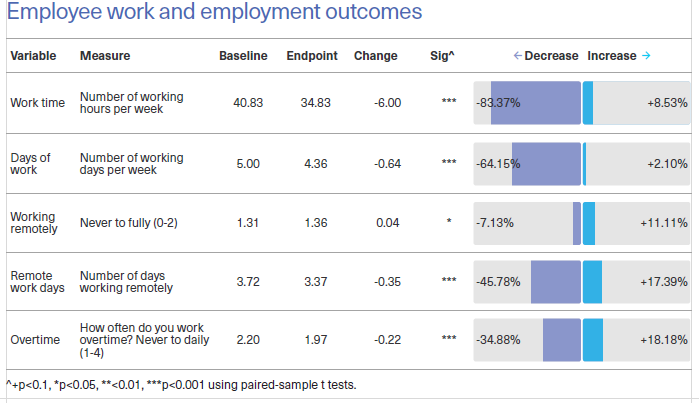

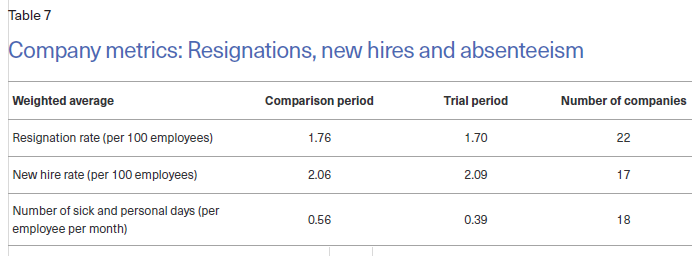


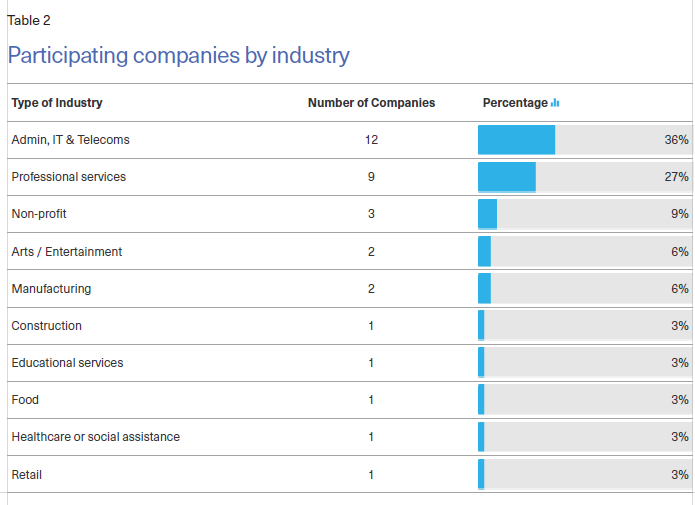
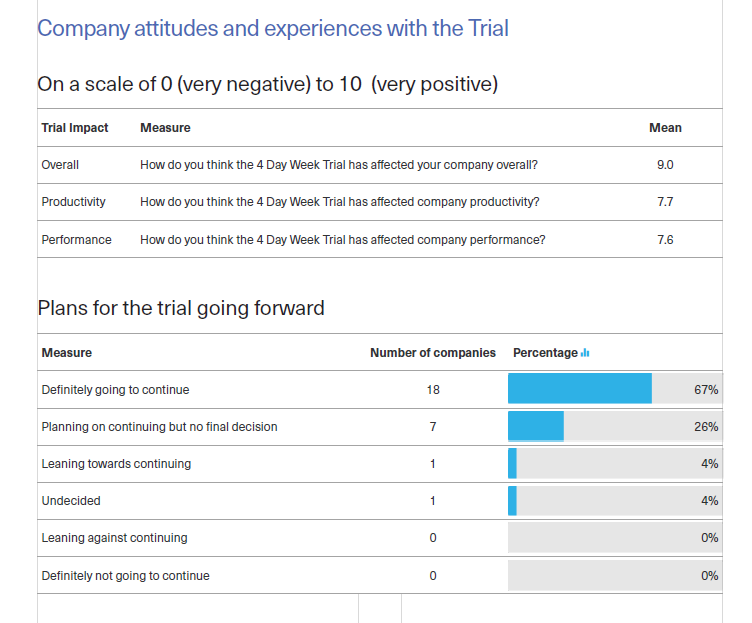
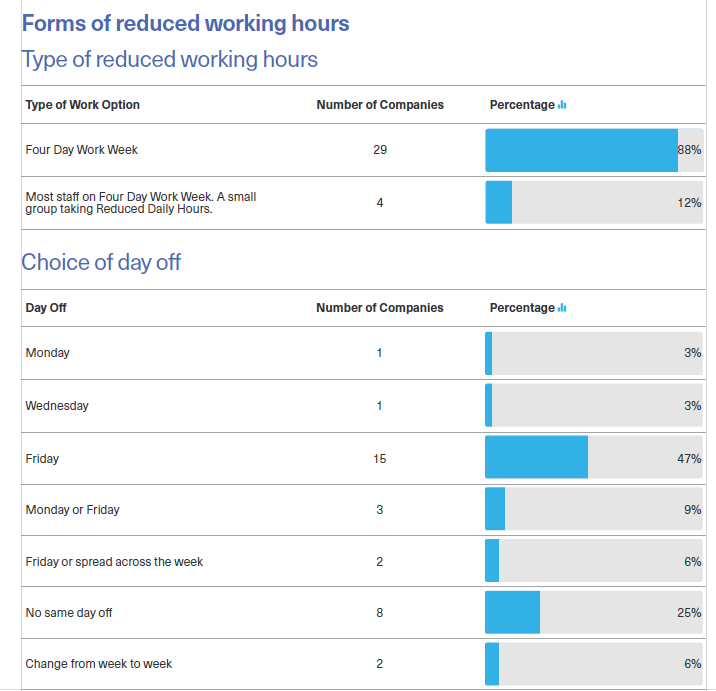
Thank you for this excellent summary. It answers all the questions I had, and it’s wonderful news.
Sanity reigns north of the US. Too bad trickle down doesn’t work, in any form.
Don’t feel jealous on this one. We have had multiple successful trials of a universal basic income, and the only thing it’s led to is more trials. I am certain the 4-day work week will suffer the same fate.
and the only thing it’s led to is more trials
The opposition needs a case to cherry-pick and it doesn’t have one yet, I guess. But they’ll find one and, if they’re true to form, latch on like a tick until they’ve sucked any and all political cred out of it.
We are bringing 1 million low skilled immigrants from third world, the house and renting prices are beyond crazy. Rampant immigrant criminals. We are getting more taxes soon.
This place is a shithole
Thank dog, I love immigrants! They’re the lifeblood of Canadian culture!
Immigrant
I was born here, but yes, I’m from an immigrant family. Just like the almost 36.5 million other immigrants here
Racist
Stop reading bullshit right wing propaganda and you won’t be so delusionally miserable about everything.
I had to fly to Toronto for work last week
Shut it down everyone. We’ve clearly got an expert here.
He took a plane, clearly he’s also an immigrant. Checkmate.
If you’re saying a million per year, that means you’re counting international students. By definition, if they’re coming here and paying our very-expensive tuitions, they’re not going to be low-skilled for long.
The number of people who enter through immigration (incl. refugees) is more like 450k (for comparison, 2015 target under Harper was 270k), and about a third of those are refugees. Yes, there are criminals who exploit the refugee system. That’s what it costs to be a decent person.
Office workers aren’t very productive in general. We should focus on greater automation.
I’m an office worker. I work on automation.
Where’s that leave me? Who automates the automaters?
Also, from the office work I’ve seen, and compared against WFH, I’d agree to SOME reduced productivity - like 20% - but which is regained by allowing experienced people clear work time without interruption (which we get in remote work). The other 80% may actually be difficult to automate as trivially as required for any gains here.
And the concordant social safety nets and baseline wealth redistribution that benefit citizens over corporations.
It literally benefits everyone.
How many hours each day do people take to “wake up” and get going? I’d argue people are mostly useless up until close to lunch time. Then, people wind down when the day end is nearing, meaning companies are losing more productive hours each week.
I also would prefer to do longer days if I already dragged my ass out of bed. I don’t run for errands daily to make them shorter. I pile them up, then take 4-5 hours one day, vs 1 hour each day. I am already out doing it, might as well do them all, and have more time to relax at home other days.
This works for many businesses, but sadly cannot work for certain industries like manufacturing, steel making, petroleum refining. etc. These are 24/7, 365 operations and running less than that actually costs them money. However, you’re usually well compensated in these industries in my experience
That’s why they have shift workers. Reduce the shift hours to be the same as a 4 day week. Its not hard
But then you need to hire more staff. I think part of the sell is that it’s no more cost for the employer, since workers get more done in less time. That might not be true for many operational jobs.
It could also lead to better productivity and less turn over with employees which would be a net positive in the end. When I did labour jobs 2 days off was not enough for me to recover, 3 days off would have been better for my body and mental health and maybe I would’ve stuck around longer.
And these were the same excuses used when we went to 40 hours a week and the world kept on turning.
The issue is that these sorts of fields are notorious for not liking to hire more than they have to. They’d rather overwork their existing staff than hire more.
I knew a guy who worked as a machinist, and basically everybody in his company worked 60+ hours every week all year, and the company compensated proper overtime the entire time. The company basically paid double wages for 50% extra labour, and that’s presuming that the employees even did 50% extra work for being tired all the time. The guy quit the job because he couldn’t take it after a few years, so in the end the company had to hire more help anyways.
It’s an issue of culture as well as many other things, and few people want to go against tradition.
not liking to hire more than they have to
A strong desire to save money seems a widespread phenomenon.
‘Market Forces’ will ensure these companies starve, since the first shop that CAN adapt will steal the best workers.
The mill I work in is already set up with shift work…they work 1st shift (week 1), 2nd shift (week 2), 3rd shift (week 3), and then go on long weekend 4 days off. My department runs 21 turns (we are the plant bottleneck by design), meaning 3 shifts of 8 hours, 7 days a week. Most people dont work 7 days straight unwillingly, but regardless of that fact, you need to keep running. Not running is losing money, losing money gets corporate to shut you down, getting shut down means you have no job and the company doesn’t care either way
There is a trade off when dealing with continuous operations. You run into the issue of, “Not running costs more money than running and paying people overtime.” Moving to a 4 day week just means you would likely get forced more into overtime so we can keep steel flowing, not that you get more free time.
Also from the salary side of things, I just spoke to 4 other process engineers and all of us immediately agreed that we cannot get the work done required of us + do the extras of being a floor process engineer in only 4 days. We could get our “requirements” done, but then all of the extra work that we perform would cease. It would actively hurt the company and its profitability, which in turn hurts our job stability. Its really not as cut and dry as people want to make it seem in all instances
all of us immediately agreed that we cannot get the work done required of us + do the extras of being a floor process engineer in only 4 days.
- the plural of ‘anecdote’ isn’t ‘data’.
- most/all 4-day-work-week experiments collected statistical data showing a strong trend suggesting the extra rest time made both the rote/repetitive work cleaner and the knowledge/expert work faster.
Unless your shop is a weeeird outlier, you stand every chance of coming out of a 4dww trial working more efficiently, more rested, more reliably, more effectively. That’s actually a very common theme in all this, that any ‘loss’ in time or money is eaten up by better work done more effectively when we’re not so tired we’re microsleeping all day and wondering where we are and where we were.
Also to your other part about “it’s not that hard”
It actually is. We cannot get enough bodies in the mill to not work everyone at full time. We pay 18 year olds 6 figures to operate a mill and we still cannot get enough bodies to come anywhere close to working a 4 day week.
It straight up doesn’t work that simply when you’re running enormous 24/7 operations in critical industry. Thats like all the football fans on the couch yelling at the coach “JUST DO X”. Really easy to say “do X” but the application becomes extremely difficult. Yeah in an office, sure…in a refinery where you create base stock products that allow hundreds of other major plants to run to produce all the basic products you use every single day? Not gonna work that way
This isn’t some machinist shop that takes orders. it’s a multi billion dollar full rip steel mill/refinery/plant/etc. that loses LOTS of money when it’s not at full capacity. That has lasting knock on effects on other industries for example when base manufacturing can’t keep up
You have salary workers like process engineers for example. Working less than 5 days regularly just isn’t acceptable. I would not be effective in my job if I only had 4 days a week to get everything done. Also someone always has weekend coverage on “off” days for salary or holidays. So you’re still “working”
Also many plants have minimum hour requirements in their union contracts where we have to run X days minimum a week or we still pay. There is more to the puzzle than just the office sector.
You have shifts and shift workers yes but again, the mill basically needs to run 24/7. so lots of people get forced for OT, or willingly take it
Edit: I love the downvotes with no refutement. I am not talking from no experience here. I actively work as a process engineer in a steel mill and actively deal with these problems DAILY. Moving to a 4 day week changes nothing in 24/7 operations. You have to run all of the time, end of sentence (or your mill is getting shut down, and you all lose your jobs…nobody in the mill wins there). The compensation is through the roof and most people end up pulling in tons of overtime. I dont know many other jobs that an 18 year old can pull in an EASY 6 figures with no form of education past high school. The hourly guys make WAY more than any of us salary folk (me and other engineers have spoken candidly with guys on the floor, and they pull in well over 100,000 with no overtime), and on top of that, there are guys who get legitimately pissed when they can’t get enough overtime or work more hours cuz they want that money
We tried to bargain 4 day work weeks years ago at a place I worked, and it was a scheduling nightmare.
Objectively, since we needed to have doors open and responders/equipment operators on site 5 days a week, it would have meant hiring something like 30% more people.
Non-ojectively, when management brought these concerns forward, our position was “that’s a management problem”.
hiring something like 30% more people.
I bet it was ( 5 / 4 or ) 25% more.
Having that one day when external coordination is impossible is why absolutely no business is ever open from Sunday to Thursday or Tuesday to Saturday since they all failed. Except they are.
If you need some scheduling help, you may want to buy a computer and have it help the crunching. At the famous fast food restaurant a while ago, we used tools to ensure adequate coverage against workload; and your problem sounds the same except with one fewer variable. It was 35 years ago, so it probably works as an app on your watch, now.
My boss just mentioned 4 day work weeks… with the same amount of hours, I said that the idea is less hours, not the same hours crammed into less days and he absolutely refused that that is what people mean with 4 day work weeks…
I’ve been discussing this, lightly, on and off for a couple of years know, and most workers can’t wrap their head around the idea, either.
“They’ll never do that for us,” says the class the owners are completely and totally dependent on.
Your boss is dumb as a bucket of rocks.
You’re, uh, replying to the wrong person.
To be fair, that statement has fairly broad applicability
Yeah… it’s definitely gonna take some time to get employers on board.
To be fair to your employer, he may have conflated two different kinds of 4-day work weeks.
The current discussions are mostly about 32-hour weeks, but there is a very long history of what labour law calls the “modified work week” in which the number of hours per day or days without breaks are changed to allow for alternate scheduling without triggering overtime. I’ve worked 4-10s, 8 on 6 off, and other oddities since I entered the work force in the early 1970s.
The most common of those is 4-10s, and it’s always been known by that name (4-10s) or 4-day week, or “4 and 3”, with “4-day week” being the most common in my experience.
I know that my own following of this issue makes it clear that there are a lot of people confusing the two different kinds of 4-day weeks.






